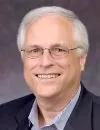Advancing the truth about Native Americans is difficult because history books are still full of stereotypes, Christine Duckworth, a board member of the Baltimore American Indian Center, told a University of Maryland Global Campus (UMGC) audience during an event to mark Native American Heritage Month.
“I want people to know the truth about our history, and not what our government has decided to teach people in school, because what you're taught in school is not our true history,” Duckworth said during the Nov. 29 online event hosted by Natasha Rodriguez, UMGC’s director of Multicultural Training and Diversity Programs.
“We are the only group of people whose history is still not being taught correctly,” she said. “They educate correctly for the most part, about the Holocaust and the Jews. They educate correctly for the most part about the traumatic experience that Africans had coming over here as slaves,” she said. “They have atoned for those things for the most part. But us Natives, they still can't seem to wrap their minds around telling the truth about what we had happened to us.”
Instead, she said, Native people are told that they should just get over what happened long ago.
“Would you tell people of other races to get over things that their ancestors endured?” she asked. “But for us, we have this stereotype that we’re easy to push over.”
She said the current generation is more likely to challenge inaccurate historical views and there are more places to glean information. However, Duckworth cautioned, the search for information on the internet needs to come with a careful check on who is doing the posting. She has her own advice for doing that.
“I find it very difficult for a non-Native person to teach anyone about Native American issues and concerns,” she said, when asked about information on the Internet. “If it’s a non-Native person, skip over it and find something else.”
Duckworth grew up in Baltimore and is a member of the Lumbee Tribe of North Carolina. Many Lumbee people migrated to Baltimore for work, creating a strong community anchored by the Baltimore American Indian Center. Duckworth is also a member of Baltimore’s LGBTQ community. She talked about the nexus of those two cultures.
“Native Americans are one group of people who are very inclusive, as a general rule,” she said. “We don't have a situation where you're not included in something because you look a little different, you dress a little different, you act a little different, you choose to love the same gender.”
She said she has found little conflict between her Native culture and her LGBTQ culture. Rather, she said she faced more discrimination from the Pentecostal church in which she was raised. There, she said, “You are not allowed to be gay in any way, shape or form.”
Duckworth’s life is deeply marked by her heritage. She started traditional dancing at age 6, began doing beadwork as a teenager and travels to powwows as a traditional dancer and to sell her own Native American craftwork. With her engagement at the Baltimore Indian Center, Duckworth followed her mother’s example.
“It’s up to our elders to give back into the community, giving them a sense of belonging,” she said. “I'm a huge believer that in order to know where you're going, you have to know where you came from. I think your identity and your culture can sometimes push you forward to make you achieve better things.”
During the UMGC question-and-answer presentation, Rodriguez asked Duckworth why she thought higher education enrollment numbers for Native Americans are so low? Apart from the financial challenge, Duckworth said, Native Americans must manage psychological challenges, including a lack of confidence.
“They have been beaten so down that it’s kind of instilled in our DNA that ‘Don’t try—you’re not going to be anything anyway,’” she explained. “Indigenous students going into higher education want to know they will not be alone.
“We tend to gather together in a support system, to have someone to talk to,” she added.
It is not easy to overcome centuries of discrimination and lies designed to erase indigenous culture, Duckworth said. She noted that for many years, it was illegal for Native people to wear traditional dress, speak their languages or dance their dances.
“So, what I’m most proud about is that our heritage is still here,” she said. “We have lost many of our languages, but some are still here. Our culture is alive, and we’re able to educate and teach everyone about it, Natives and non-natives.”
